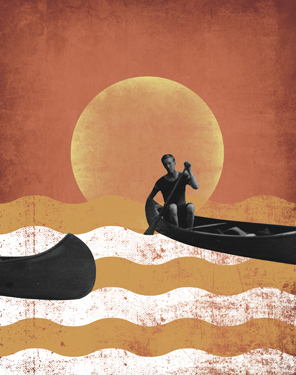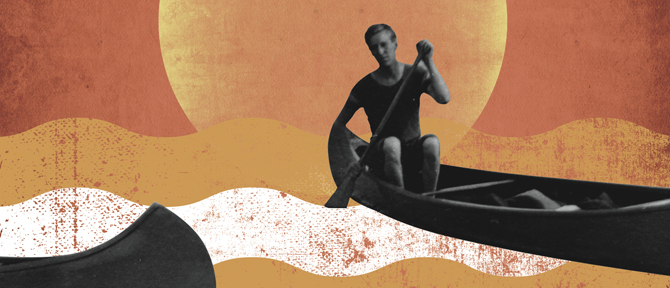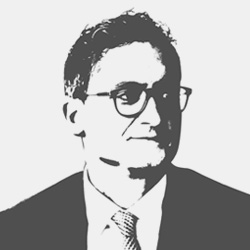The Cuban Triathlon: A huge effort, but things are changing
A sports competition in Havana becomes the best reflection of the Cuban reality after Obama’s visit
In Cuba Today is the digital edition of the Miami Herald’s Cuba section, reporting news from the island. Culture, politics and business are the main sections in this publication, which serves as source of information for the Cuban community in South Florida and especially for U.S. businesses, which are increasingly interested in the changes taking place on the island. In June, In Cuba Today reported a Miami-based venture capital firm’s plan to invest in several sports events held on the island.
Among them is the increasingly popular triathlon in Havana, which brings together athletes from around the world every year, attracted by a competition that is run through the most emblematic locations of the Caribbean capital. Just like this triathlon, the normalization of relations between Cuba and the U.S. and the opening of the country to foreign investment will be a long race full of obstacles, only suited to well-prepared and tenacious professionals who believe in medium- and long-term results.
The country’s political, social and economic opening seems to be moving at a different pace for citizens, businesses and governments in both countries
This sporting event is the best reflection of a process that began December 2014. In two coordinated press conferences, Barack Obama and Raul Castro announced to the world the normalization of diplomatic relations between the two countries. As a consequence, the last 12 months have seen milestones of great historical importance that we cannot fail to emphasize: the mutual opening of embassies in both countries, the lifting of travel restrictions for U.S. citizens and Obama’s visit to the island –the first by a U.S. president since 1928– are just some of the most obvious signs of the normalization of bilateral relations.
Although certain things, such as the economic embargo, can only be lifted by the U.S. Congress, opposition from prominent lawmakers and a small but strong Cuban community against any concessions to the Castro regime, as well as part of the internal Cuban opposition, pose obstacles to the normalization process under current conditions. The country’s political, social and economic opening seems to be moving at a different pace for citizens, businesses and governments in both countries, and it seems this will be difficult to stop.

Following international expectations, media attention and the most symbolic milestones of this normalization, the political reality of the island has revealed its traditional nature. For Cuban analysts, the announcement that Raul Castro will remain as leader of the Communist Party until 2021 poured cold water on the most optimistic hopes for change. The youngest faces of the Communist Party, such as Vice President Miguel Diaz-Canel, must wait for their chance to take over from the octogenarian commanders of the revolution, whose retirement will likely occur more due to geriatric issues than to any dynamics of political change or popular pressure. Members of civil society and independent journalists still do not have the freedoms they long for in Cuba.
But it should be noted that some reforms regarding the opening of Cuba’s private sector have been announced, aiming to improve conditions for the self-employed and small businesses, which are beginning to arise more thanks to will than resources. Traditional Cuban ingenuity, combined with these new opportunities, mean that, as it is often the case, the private sector is moving faster than current legislation and governments.
Firstly, with the aim of improving training and possibilities for these entrepreneurs, several U.S. universities have established collaborative partnerships. Florida International University (FIU) has developed the InCubando@FIU program, the first class of which, made up of 15 self-employed Cubans, spent six weeks studying at FIU’s Business School in Miami. The increased mobility of citizens and international tourists to and from the island, as well as new ways of collaborating with civil society, has created unprecedented opportunities for a society that is eager for economic and political change.
Secondly, when visiting relatives on the island, Cubans settled in southern Florida have historically carried in their suitcases not only products difficult to find on the island, but also provisions for family businesses and the self-employed; Chairs and tables in Cuba are repaired with nails from Home Depot. The embargo has been resourcefully and skillfully circumvented by visitors to an island that is more accepting than ever of trends from abroad.
Thirdly, the first truly American multinational is already operating on the island; today there are over 300 rentals available on Airbnb’s website, from Havana to Baracoa, ranging from apartments in the historic center of Cienfuegos to houses by the sea on many of the island’s beaches. This digital reality, often underground, is an entrepreneurial opportunity for many Cubans who, since they do not have internet access, put family and friends outside of the country in charge of managing these properties.
Traditional Cuban ingenuity, combined with these new opportunities, mean that, as it is often the case, the private sector is moving faster than current legislation and governments
Fourthly, the end of the seventh season of Game of Thrones premiers in Havana just hours after it does in the U.S. In another usual stroke of ingenuity, groups of IT-literate young people download the series and circulate a portable memory known as “package” through the streets of Havana, making hundreds of copies to circumvent the internet access restrictions on the island. Spielberg’s latest release or the newest Netflix series are available via this analog trade of digital content shortly after a teenager in Chicago or New York can watch it on HBO.
Sometimes little-known, these and other examples of entrepreneurship, budding business initiatives and new business models borne in the streets of the country rather than in high places show that many of the changes taking place in Cuba are happening away from the eye of the media.
When the triathlon begins next February in Havana, many national and international athletes will participate in this endurance test, running through the streets of the Cuban capital. One of the challenges of the triathlon, as with Cuba’s economic openness, is that after coming out of the water, there are still several kilometers to do on a bike and several more kilometers to run. It is a challenge apt only for the most prepared and tenacious athletes. We, as a company, are already participating in this race and are learning how it is possible to participate in the opportunities that have already opened up, but, above all, in those that are still to come.
Today, we are all a little more Cuban.


